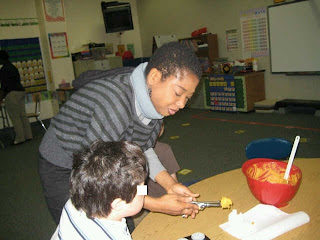In
the course of my interactions with parents having children with Autism Spectrum
Disorder (ASD), I often encounter those who want to "dump" the child
on a therapist and expect "miraculous" changes in the child. I must
emphasize that active involvement of parents and siblings is very important in
special education intervention for a child with autism or any related special
needs. No one knows a child better than the parents. Remember that you as the
parent will in the end be the one who cares the most for, and is affected the
most by your child's condition. Besides, you spend more time with your child than
anyone else. You can use that precious time to generalize the teaching goals
into everyday living situations and activities.
Parents
are positioned to provide direct therapy to their child. However, as parents better
understand, having a child with autism takes a huge emotional toll and coordinating
the treatment team can be a daunting task. Therefore, whenever possible, it is
recommended to use hired therapists to do most of the intensive work. This
allows parents to have some respite and the remaining time spent with their
child can be more enjoyable and productive.
Parents
can use the child's time that is not spent in intensive programming to develop
play, social and self-help skills. Spending time outdoors by visiting the park,
shopping mall, close friends and relatives' homes are opportunities to
generalize skills and work on improving
behavior. Similarly, brushing their teeth, having a bath, getting
dressed, and having a meal are just a few examples of everyday routines that
serve as opportunities for teaching.
As
a result of these, the child's day if filled with activities that become part
of the therapy process. More importantly, the parents become an integral part
of the special education intervention team. Therefore, it is important to
involve the child in the family daily routine of living, this will reduce any form of isolation for the child.

No comments:
Post a Comment
Please leave your comments or questions here. Thanks.